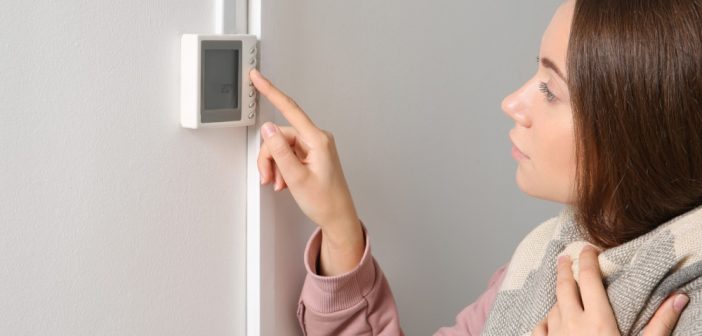Fighting over the thermostat is an age-old family exercise. Perhaps the kids feel a slight chill and push the head up to 90 degrees while their parents aren’t looking, or maybe a couple has vastly different ideas about what a comfortable temperature should be.
It’s hard for anyone to agree on the ideal temperature, but if you’re looking for some fuel to your argument that it’s too hot or cold, science may be able to back you up. Various studies have looked at how temperature can affect a person’s body, from sleep comfort to heart health. Here are some surprising ways being hot or cold can impact your health.
High blood pressure
The cold winter air may feel refreshing to some, but to others, it might put a strain on their heart. Researchers have found that cold weather is associated with a significant increase in both systolic and diastolic blood pressure. The increase has been shown both for people with prior high blood pressure and people with normal levels. Luckily, making an effort to stay warm in the home or while you’re out and about can help to counteract the effect of the cold weather.
“Bundling up and avoiding exertion can help people with preexisting heart conditions stay safe in the cold,” says Amy Doan, administrator at Smith Ranch Skilled Nursing & Rehabilitation Center. “A healthy diet in warm weather or cold can also help keep blood pressure down.”
Trouble learning
As the temperature rises, our ability to learn drops. According to one study, students may have lower achievement in school when it is hot outside: researchers looked at PSAT results from 10 million students and linked them to local weather, finding that hot school days reduced academic achievement. A likely cause of the lower achievement is reduced productivity during instructional time. Students who had air conditioning in their school performed better than students who did not, so keeping the building at a comfortable temperature can likely improve learning.
Asthma
Working out during the winter could give you exercise-induced asthma, even if you do not have underlying respiratory issues. The cold, dry air can make your airways narrow, causing coughing, tightness in the chest, wheezing and feeling shortness of breath. You shouldn’t let this get in the way of staying fit during the winter, however. If the temperature is in the single digits outside, find a warmer place to exercise, like a gym or at home.
Migraine trigger
People who have migraines may find that extreme temperatures can trigger powerful headaches. Several weather features can be more than an annoyance for people with migraines, including the temperature. Very cold or very hot days could bring on a migraine, so stay indoors if you notice a change in temperature gives you a headache.
Better sleep
Being too warm or too cool at night could have more of an impact on your sleep than you realize. Not only can the wrong temperature keep you awake, but it can also affect the quality of your sleep when you do fall asleep. Sleeping at the wrong temperature can decrease the amount of REM sleep you get, so adjust the thermostat and add or remove bedding and clothing to achieve the ideal temperature while you rest.
Better fat
A cool bedroom could help you maintain a healthy weight. Researchers found that people who slept in a cool room had more brown fat, a kind of fat that burns energy and helps maintain body temperature. Brown fat is healthier than white fat, which contributes to obesity and raises the risk of type II diabetes.
Being too hot or too cold is not only uncomfortable, but it can also have an impact on your health. So, go ahead and mess with the thermostat and find a happy medium for you and your body.
A version of this article was published by The Daily Herald. It has been republished here with permission.




